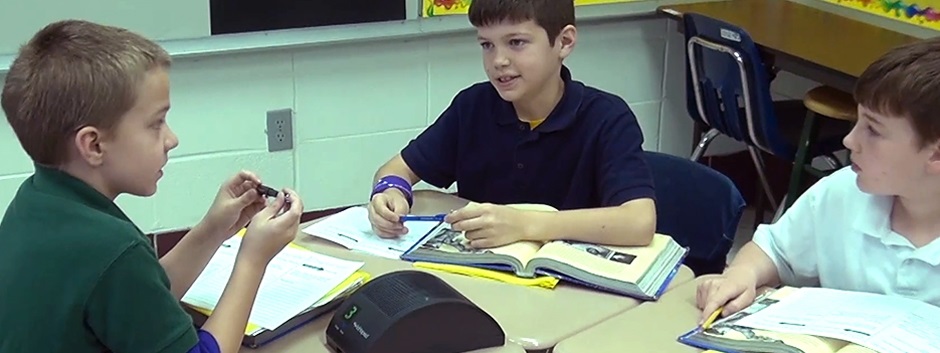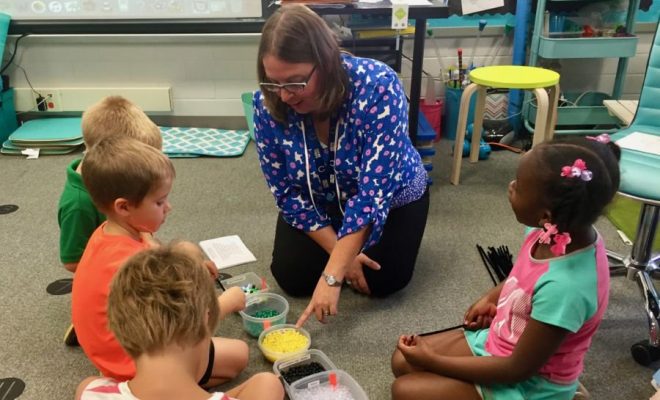Integrating Self-Regulation Strategies into Classroom Routines and Activities to Support Children’s Learning

How often have we, as teachers, felt that a significant portion of instructional time was wasted because of poor student behavior? Our instructional time is already so scarce, and this can be a frustrating feeling. But, the behavior of our students may not be to blame.
Often, the reason students do not do what you want them to do is because they don’t understand exactly what is expected of them. For instance, we may become frustrated when our students enter the classroom noisily and talk to their friends instead of sitting in their seats right away and getting started on the warm-up. But how many of us actually have a procedure in place for entering the room? And how many of us have actually rehearsed that procedure multiple times with our students?
Self-regulation strategies are those strategies that allow individuals to regulate their own behavior. And, when in the context of classroom routines and activities, these self-regulation strategies can help your students flow seamlessly from one activity to the next, knowing exactly what to do and where to go, without you having to constantly remind them.
What are some examples of self-regulating strategies in classroom routines and activities?
A self-regulating routine that will save a significant amount of instructional time is the way in which students enter the classroom. For instance, you can establish the expectation that when students enter your classroom they are to do so quietly, sit in their assigned seat, get out a pencil and a piece of paper, and get started on the warm-up that is posted on the board. You can use the assigned seating system for quick attendance. This way you won’t waste 10 minutes at the beginning of class trying to get everyone to focus.
- Absent work
When students are absent, they will often take responsibility for themselves and ask what they missed while they were gone. While this sense of responsibility is appreciated, many teachers do not want to waste instructional time playing catch-up with the one student who missed the lesson while the 20 other students wait around for you to begin class. With a self-regulating routine such as an absent folder, students can quickly grab their missing work from a specific date by using a labeled absent folder.
To avoid students needing to constantly ask you for a pencil, a piece of tape, or a stapler, keep all of these items in a student station at the back of the classroom. Students will then be able to take charge of their own learning by gathering the necessary supplies themselves.
- Classroom jobs
Classroom jobs can be a lifesaver for teachers, and students love them, too. Helpful students enjoy assisting the teacher and having a designated task. You can assign classroom jobs such as a white-board cleaner, pencil sharpener, line leader, and so on. Once you train each student how to perform their job successfully, you won’t need to worry about cleaning your own board or sharpening your own pencils for the rest of the year.
How to integrate self-regulating strategies into your classroom
When implementing these procedures, it is incredibly important that you rehearse these routines with your students multiple times, not just on the first day of school. Even high school students require reminders about expectations. If you don’t practice each and every procedure with your students, you will not be able to successfully implement self-regulating strategies into your classroom.
The primary reason that self-regulating strategies are useful is that they save time and frustration for everyone involved, meaning that more of your attention is devoted to teaching the concepts rather than dealing with misbehaviors. When students are in a comfortable environment in which all gears are turning smoothly, they will be primed for learning.





